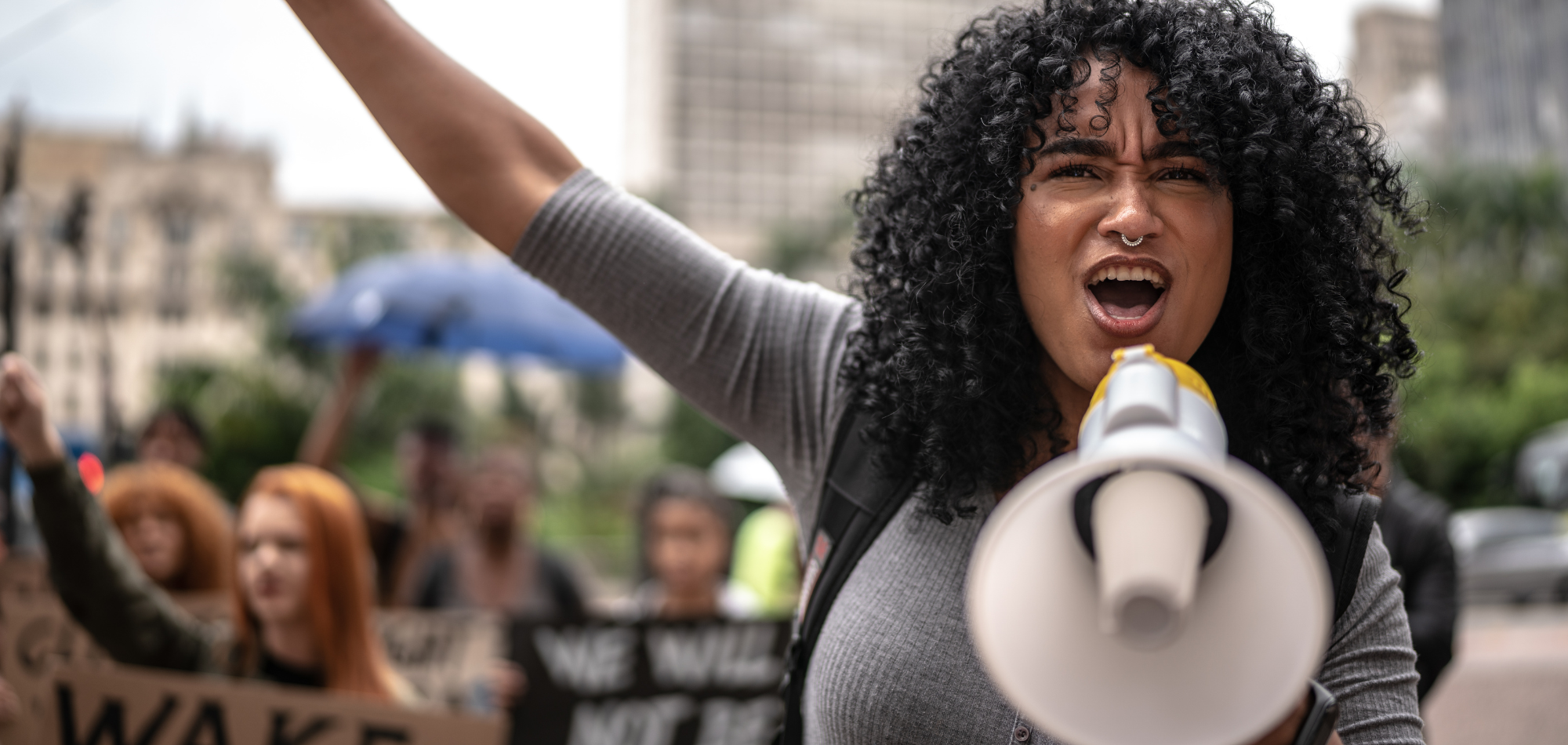

Women’s Equality Day: Doubling Down on Democracy, and other ways to Support True Equality
August 26 is Women’s Equality Day, commemorating the certification of the 19th amendment in 1920, which granted women the right to vote — but effectively, only white women.
This day is not a celebration but a call to action. More than a century later, women of color, LGBTQI+ people, people with disabilities, and others who experience high levels of discrimination (and now threats to their physical and psychological safety) continue to lead the charge on fighting for voting rights as threats continue to mount.
The Racist History
The road to women’s suffrage in the United States was inextricably linked to racism, as white suffragists deprioritized Black enfranchisement in their campaign, and vicious Jim Crow laws robbed Black women and men of their right to vote for decades. Asian Americans, Native Americans, and Latinx communities were also denied access to the vote for another 45 years, until the passage of the Voting Rights Act in 1965. (It must be noted that Latinos and Asian Americans increased their political representation in U.S. politics after testifying about the years of discrimination they faced at the polls and, as a result, the Voting Rights Act required language assistance at polling stations in 1975.)
The Racist Present
As we know, threats to voting rights and democracy are critically high again, and each threat disproportionately targets Black voters and other people of color.
Just last month, Alabama lawmakers defied the U.S. Supreme Court when they refused to draw a second majority-minority congressional district as ordered in Allen V. Milligan. Legislatures across the country continue to pass restrictive voter ID laws, laws that cut or restricted early voting, and others that prevent community organizers from assisting people to the polls. Between these laws and gerrymandering, people of color are both being blocked from voting, and their votes are not being counted equally in our elections.
Fighting back on the front lines of these attacks are women of color and women-of-color-led advocacy organizations. Black women have been pushing back against voter suppression for generations, and now their pivotal votes are helping to decide key national races that defend the civil rights of every American.
Take Action
In addition to continuing to demand voting justice, there are plenty of direct actions we all can take to advance true equality this Women’s Equality Day. Send pre-drafted emails to your elected representatives with a few clicks on these priorities:
Federal
- Demand economic justice by emailing Congress about the Paycheck Fairness Act.
- Many minimum-wage and low-wage workers are offered no paid sick days. They often have to choose: skip work and risk not being able to afford rent that month, or go to work sick. Email lawmakers about the Healthy Families Act, which would provide 7 paid sick days to workers nationwide.
- Our government is currently making substantial investments in state infrastructure projects, creating a prime opportunity to intentionally diversify well-paying jobs in construction, electric, transportation, and more. Email lawmakers encouraging the recruitment of women workers to staff these robust infrastructure projects.
- Many underpaid workers are given little to no time off after giving birth. Send a pre-drafted email to lawmakers asking them to pass the FAMILY Act, which would ensure job-protected family and medical leave for all.
Continued below.
California
- Employers often allow implicit bias against mothers to influence hiring, promotion, and other workplace decisions. Help end discrimination against parents and other family caregivers by urging CA lawmakers to pass Assembly Bill 524.
- After reporting workplace violations such as sexual harassment or wage theft, many employees experience retaliation via reduced work hours, failure to be considered for a promotion, being moved to less desirable projects, and more. Help protect the whistleblowers who stand up for our rights by supporting Senate Bill 497.
- Women of color make up the majority of CA’s Domestic Workers, such as nannies, home cleaners, and caretakers of elderly people. Unlike nearly every other Californian worker, they have no true safety and health protections on the job. Let’s end this racist exclusion workplace protection laws with Senate Bill 686!
Continued below.
Visit the Equal Rights Action Center for more concrete actions you can take to support equality. Subscribe to our once-weekly Action Alert emails to advocate for civil rights year-round.
Stay Connected & Take Action
- Get the Latest News & Information Sign up for Email Updates
- Sign Up for Action Alerts Join the Action Team
- Follow Us

